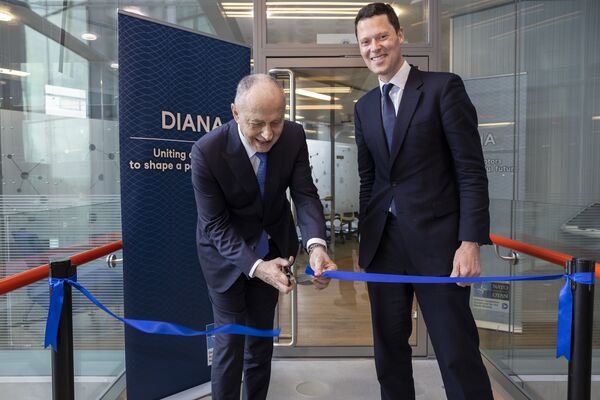
The first NATO DIANA regional headquarters was opened by NATO Deputy Secretary General Mircea Geoană (left) and UK Minister for Defence Procurement Alex Chalk (right). The centre will bring together academia, industry, and government in a shared space along with the UK's Defence and Security Accelerator, defence contractors, and the US Department of Defense's Tri-Service Office. (Crown Copyright)
The first NATO Defence Innovation Accelerator for the North Atlantic (DIANA) office was formally opened in London on 30 March, the authority announced.
Located at the Imperial College London Innovation Hub (I-HUB) in White City Innovation District, the centre aims to enable NATO members and allies develop and integrate dual-use technologies to address critical defence and security challenges at pace, the announcement said.
It will achieve this by testing, developing, and adapting start-up, commercial, and academic technologies to create potential defence capabilities.
Initial DIANA pilot activities are scheduled to start in autumn 2023 (September to November), and a second regional office is planned in Tallinn, Estonia. Full operating capability (FOC) of the DIANA enterprise is expected by 2025.
DIANA was launched at the NATO Brussels Summit in 2021 to address nine key emerging and disruptive technologies: artificial intelligence, data, autonomy, quantum-enabled technologies, biotechnology, hypersonics, space, novel materials and manufacturing, and energy and propulsion. The aim is to leverage 100 deep-tech test centres and start-up accelerators from across the alliance. Together, these centres will be supported with EUR1 billion (USD1.08 billion) of investment over the next 15 years from NATO's Innovation Fund.
As part of the innovation process, DIANA will launch competitive ‘challenge programmes', based upon specific operational end-user problem sets, which innovators can propose solutions for.
Looking to read the full article?
Gain unlimited access to Janes news and more...







